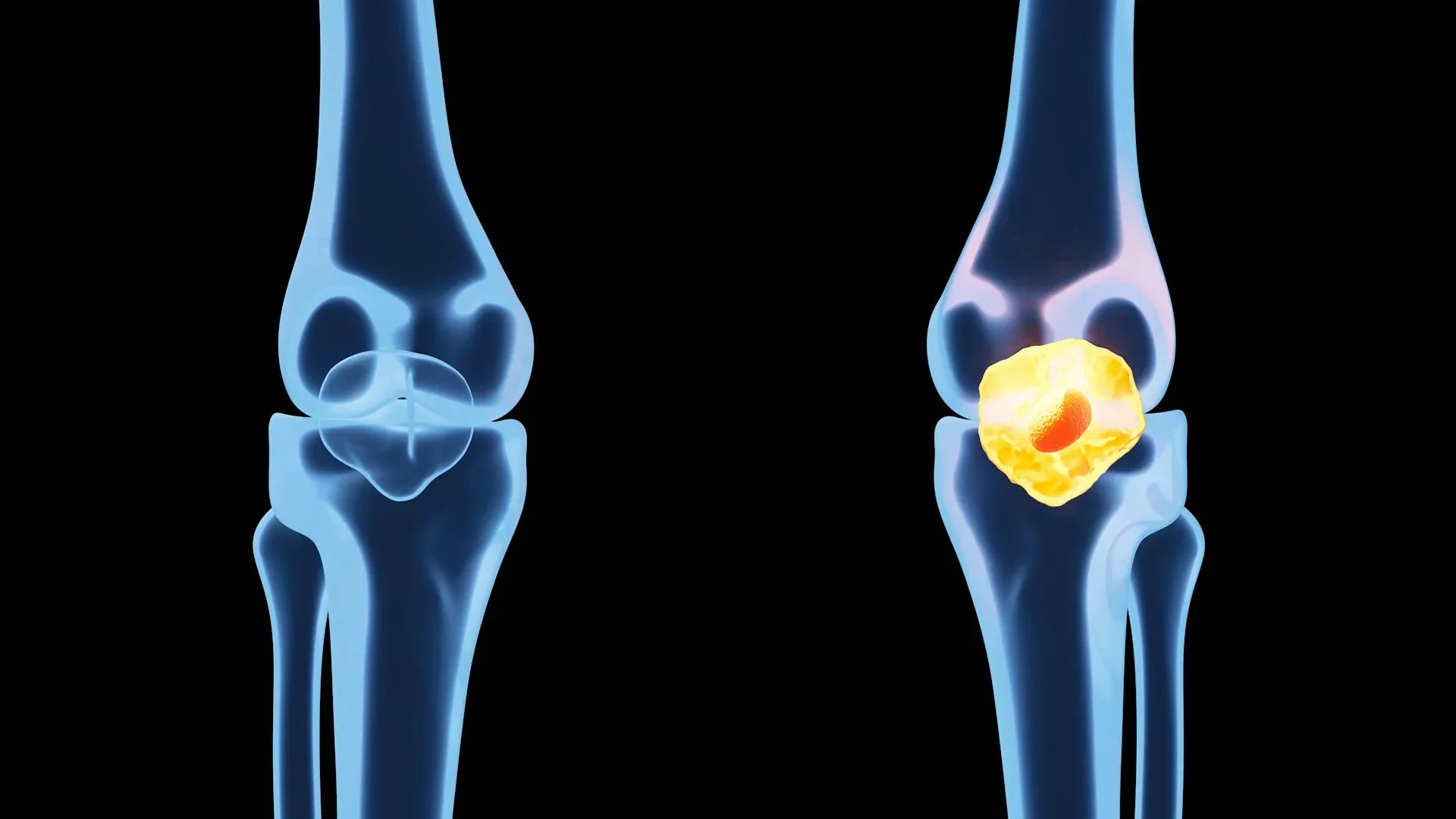Explore OCD Treatment Options Abroad: Leading Clinics and Cost-Effective Solutions

Imagine your mind constantly racing with intrusive thoughts that you can’t shake. No matter how hard you try to push them away, they keep coming back, creating anxiety that’s hard to escape. You try different ways to ease the discomfort, but the relief is only short-lived. The cycle continues, leaving you feeling exhausted and frustrated.
If this sounds familiar, you may be dealing with obsessive-compulsive disorder (OCD)—a condition that affects around 1-3% of the global population. While OCD can feel overwhelming, effective treatments exist to help you manage the conditions.
In this blog, we’ll explore the best OCD treatment options, leading treatment centers around the world, and affordable places where you can receive high-quality care.
What is OCD?
Before we move forward to explore OCD treatment options, let’s quickly understand what it actually is.
Obsessive-Compulsive Disorder (OCD) is a mental health condition where you experience certain obsessions which are unwanted thoughts that make you feel scared or anxious. To relieve this anxiety, you may feel the urge to perform certain behaviors or rituals (compulsions). In short, it is a cycle of obsessions and compulsions that are too extreme and cause severe anxiety and distress, interfering with your daily life.
According to NHS, there are three main elements of OCD:
-
Obsessions where you get constant, intrusive thoughts
-
Emotions like anxiety and distress caused by those obsessions
-
Compulsions which are repetitive actions you have an urge to perform because of anxiety
For example, you may have obsessive thoughts about germs, which leads to anxious, intrusive thoughts. To ease that anxiety, you may feel the need to wash your hands over and over again. Even though the ritual may give you temporary relief, the obsession comes back, creating a vicious cycle.
While people from all walks of life and of all ages get OCD once in their lifetime, it’s not the same for everyone. OCD can vary in severity. For some people, the symptoms are mild, but for others, it can severely disrupt daily activities.
Symptoms of OCD
The symptoms of OCD typically involve both obsessions and compulsions. These can range from mild to severe. And they might affect your work, school, and relationships.
Common obsessions
These are persistent, intrusive thoughts or urges that cause anxiety or distress. Some examples of common obsessions include:
-
Fear of contamination (e.g., germs or dirt)
-
Fear of causing harm (to yourself or others)
-
Fear of making mistakes (leading to perfectionism)
-
Intrusive thoughts about taboo topics (e.g., violence or inappropriate behavior)
Common compulsions
These are actions or behaviors performed to reduce the anxiety caused by obsessions. They may include:
-
Washing or cleaning (repeated hand-washing, showering, etc.)
-
Checking (e.g., repeatedly checking if the door is locked or the stove is turned off)
-
Counting or arranging objects in a specific order or pattern
-
Mental rituals like repeating certain words or phrases silently
These rituals can take up a lot of time and start affecting your daily life. If you or someone you know is dealing with this, it might be a good idea to get some professional help.
OCD treatment options
There are several ways to treat OCD, and the right treatment depends on the severity of your symptoms. Let’s go over the most common options.
Cognitive behavioral therapy (CBT)
CBT is one of the most effective therapies for treating OCD. It focuses on changing the way you think about your obsessions and compulsions. One specific form of CBT, called Exposure and Response Prevention (ERP), is especially helpful for OCD. In ERP, you’re gradually exposed to the things that trigger your obsessions (like touching a dirty surface) but are encouraged to refrain from performing the compulsion (like washing your hands). Over time, this helps reduce the power of the obsession.
Medications
Selective serotonin reuptake inhibitors (SSRIs) are the most common medications used to treat OCD. These include:
Some of the SSRIs frequently prescribed for OCD include:
-
Fluoxetine (Prozac)
-
Sertraline (Zoloft)
-
Fluvoxamine (Luvox)
-
Paroxetine
These antidepressants help by raising serotonin levels in the brain, which can ease obsessive thoughts and repetitive behaviors. By improving the balance of serotonin, they help reduce the intensity of symptoms.
For those who don’t respond to SSRIs, other options like antipsychotics may be added, or clomipramine (a tricyclic antidepressant) may be considered.
It’s important to keep in mind that medications can come with side effects. Some of the more common ones are:
-
Upset stomach or nausea
-
Drowsiness or trouble sleeping
-
Changes in sexual function, like a reduced libido or trouble with orgasms
-
Weight changes (either gain or loss)
-
Increased anxiety or restlessness, especially when first starting the medication
-
Headaches
When you start taking an antidepressant, make sure to inform your doctor about any other prescription medications, over-the-counter drugs, or supplements (including herbal remedies) that you're using. Certain antidepressants may interact with other medications, making them less effective or potentially causing harmful side effects. Your doctor will monitor your treatment to ensure everything works safely and effectively together.
Combination therapy
For many people, a combination of CBT and medications works best. While therapy helps address the root causes of the compulsions and obsessions, medications can provide support by reducing anxiety and obsessive thoughts. This combination can provide long-lasting relief.
Deep brain stimulation (DBS)
If your OCD is severe and doesn’t improve with therapy or medications, you might want to explore Deep Brain Stimulation (DBS). This treatment involves placing small electrodes in certain areas of your brain to help control the parts causing your OCD symptoms.
DBS is usually considered when other treatments haven’t worked and is often reserved for those dealing with very severe, treatment-resistant OCD.
Transcranial magnetic stimulation (TMS)
Another non-invasive treatment option is Transcranial Magnetic Stimulation (TMS). It works by sending magnetic pulses to certain areas of the brain, which can help lessen the symptoms of OCD.
While TMS is still considered a new and experimental approach for OCD, it has shown promise for those who haven’t responded to other treatments.
Mindfulness and relaxation techniques
Alongside professional treatments, some people find that practicing mindfulness and relaxation techniques can help manage their OCD. Techniques like meditation or breathing exercises can reduce stress and anxiety, allowing you to stay in the present moment instead of getting lost in obsessive thoughts.
Looking for affordable OCD treatment abroad? Contact QCG today to explore the best treatment options!
Can I live a normal life with OCD?
Yes, you absolutely can live a fulfilling and meaningful life with OCD. While OCD can be challenging, effective treatments like Cognitive Behavioral Therapy (CBT), Exposure and Response Prevention (ERP), and medications can significantly reduce symptoms. Many people with OCD lead successful careers, maintain relationships, and enjoy hobbies just like anyone else.
The key is early diagnosis, proper treatment, and ongoing self-care. Managing OCD often involves a combination of therapy, lifestyle changes, stress management techniques, and sometimes medication. With the right support and treatment plan, you can keep OCD symptoms under control and live the life you want.
Does OCD go away?
OCD is a long-term condition, but it can be managed. Many people see huge improvements with therapy, medication, and lifestyle changes. Symptoms may come and go, but with the right approach, you can keep them under control and live a full life.
Best OCD treatment centers in the world
If you’re looking for the best OCD treatment centers globally, here are some top options to consider:
1. McLean Hospital (USA)
Located in Massachusetts, McLean is affiliated with Harvard Medical School. It offers specialized OCD programs like ERP and CBT and is a leader in OCD research.
2. Charité – Universitätsmedizin Berlin (Germany)
A top European hospital in Berlin, Charité provides cutting-edge therapies like TMS and DBS, combining both traditional and holistic approaches to treat OCD.
3. Seoul National University Hospital (South Korea)
Known for innovative treatments such as TMS and virtual reality therapy, Seoul National University Hospital specializes in OCD and anxiety disorders.
4. NIMHANS (India)
Based in Bangalore, NIMHANS is a leading Asian center offering affordable care and a blend of traditional and holistic therapies for OCD.
5. The Priory Group (UK)
The Priory Group operates across the UK, providing intensive OCD treatment programs like ERP and CBT, with inpatient and outpatient services.
6. Rogers Behavioral Health (USA)
With multiple locations across the U.S., Rogers Behavioral Health offers evidence-based treatments like ERP and has specialized programs for children, teens, and adults.
7. Clínica Universidad de Navarra (Spain)
Located in Madrid and Pamplona, this center provides comprehensive mental health services, including advanced treatments like TMS and DBS.
These centers are renowned for their specialized care and treatments, providing global options for those seeking help with OCD.
Best countries for affordable OCD treatment
If you’re looking for affordable OCD treatment, several countries offer high-quality care without breaking the bank. Here are some of the best options:
India
India is a great choice for affordable OCD treatment. The costs are much lower than in Western countries, and facilities like NIMHANS offer specialized programs. Additionally, you can find holistic therapies such as yoga and meditation alongside traditional treatment options.
Thailand
Thailand offers a combination of affordable healthcare and a welcoming environment for medical tourists. The modern hospitals, with English-speaking staff, provide both traditional and alternative treatments.
Mexico
For North Americans, Mexico is a convenient and affordable option for OCD treatment. High-quality clinics in cities like Tijuana and Mexico City provide CBT and ERP, two proven therapies for OCD.
Turkey
Turkey is gaining popularity for offering affordable, high-quality medical care. It has modern hospitals with experienced psychiatrists, and travel and accommodation costs are low.
Malaysia
Malaysia is another excellent option for affordable yet quality mental health care. With modern facilities and internationally trained doctors, Malaysia offers a variety of treatments, including CBT and medication management.
Sweden, Germany, and Canada
Countries like Sweden, Germany, and Canada provide excellent mental health care with robust support systems and patient-centered approaches. While more expensive than some of the other options, they still offer high-quality, affordable treatments for OCD.
Tired of battling OCD alone? Let QCG guide you toward the best, most affordable treatments overseas!
Benefits of traveling for OCD treatment
There are several reasons why seeking OCD treatment abroad might be the right choice for you:
-
Access to specialized care: Some countries offer top-rated centers with extensive experience in treating OCD.
-
Cost savings: You can receive high-quality treatment at a lower cost than in the US or Western Europe.
-
Shorter wait times: Some countries have shorter waiting lists, allowing you to begin treatment more quickly.
Is OCD treatment abroad right for you?
Choosing to travel abroad for OCD treatment is a personal decision. It might be the right choice if you’re looking for specialized care, more affordable options, or faster access to treatment. However, it’s important to weigh practical factors, such as travel costs, language barriers, and the length of stay. Do thorough research and consult with professionals to find the best treatment center for your needs.
With the right planning, OCD treatment abroad could be a life-changing experience that helps you regain control over your life.
Explore world-class treatment options without breaking the bank. Contact QCG to get personalized recommendations!

